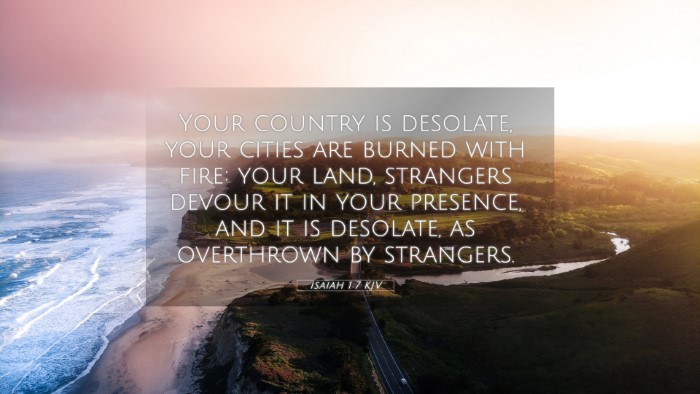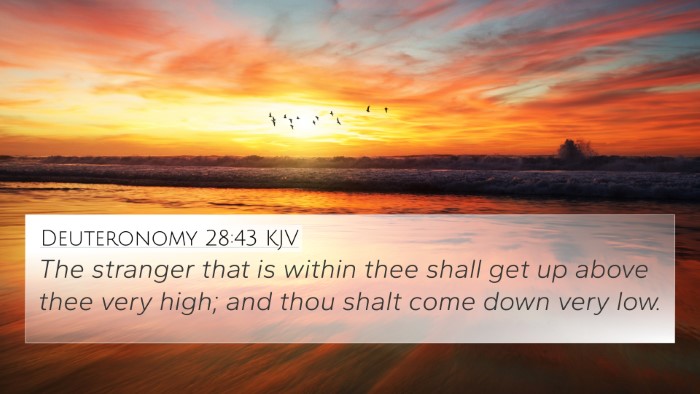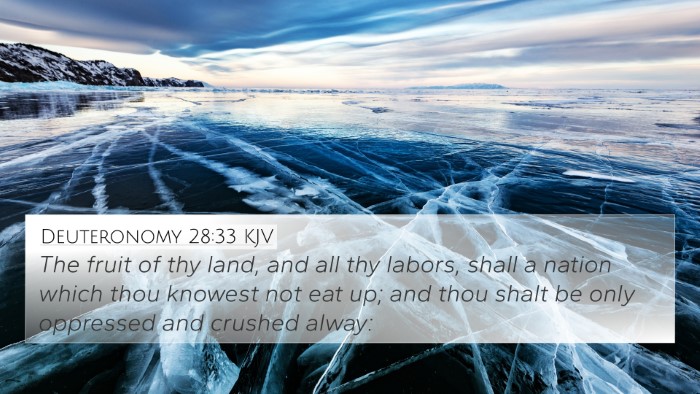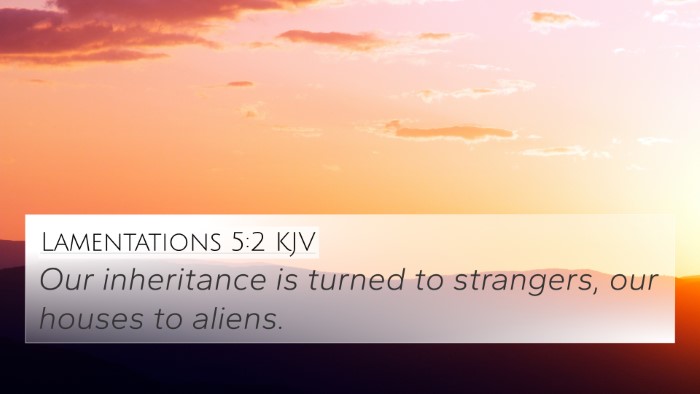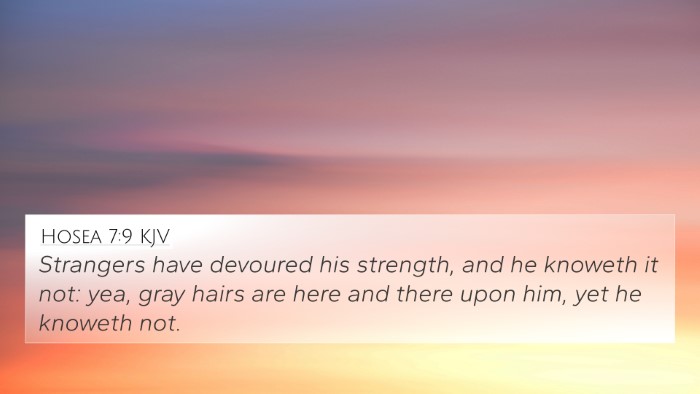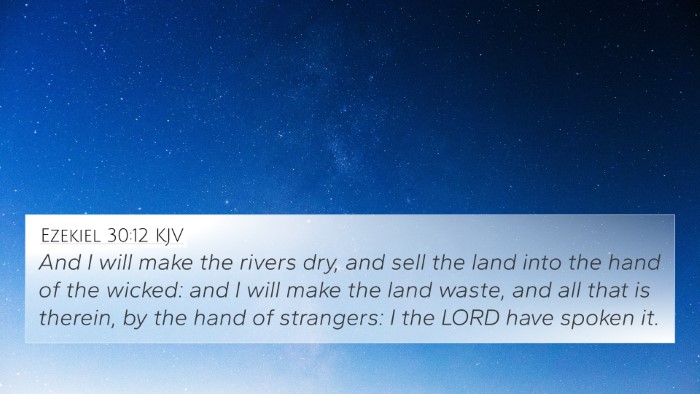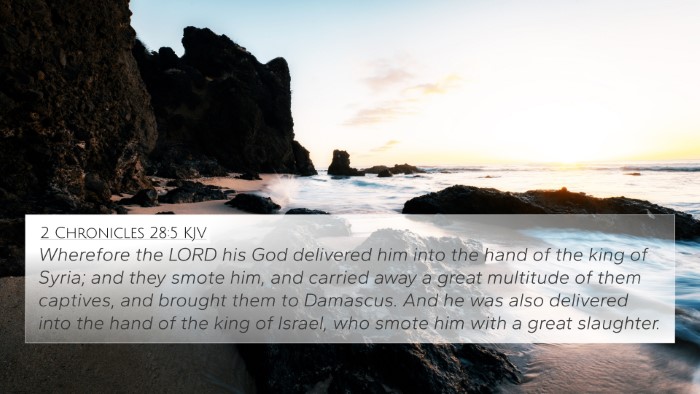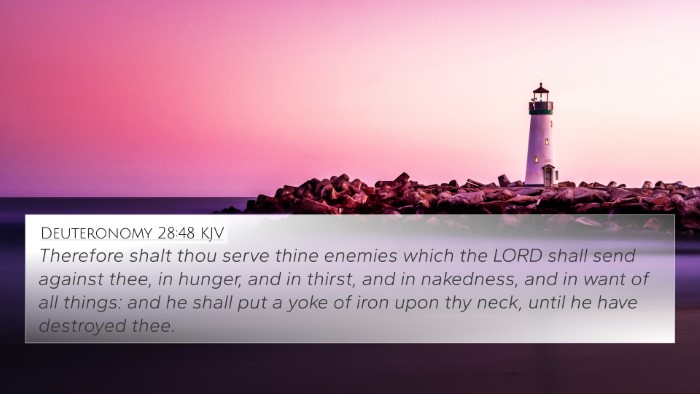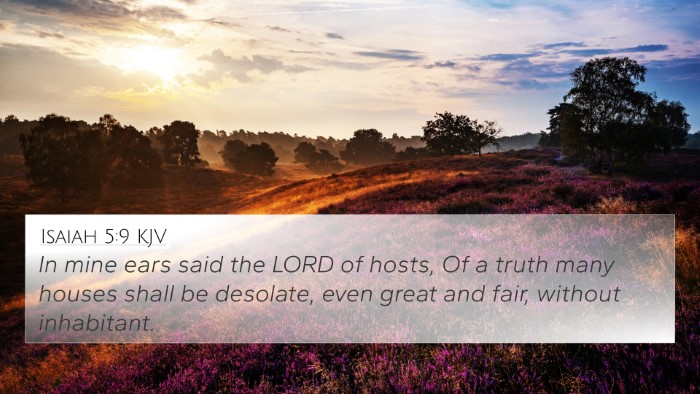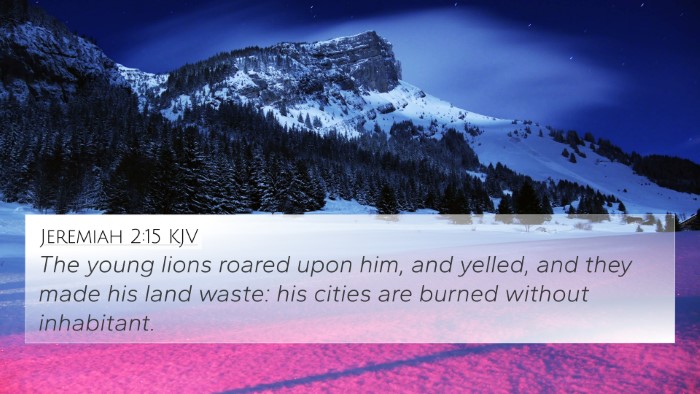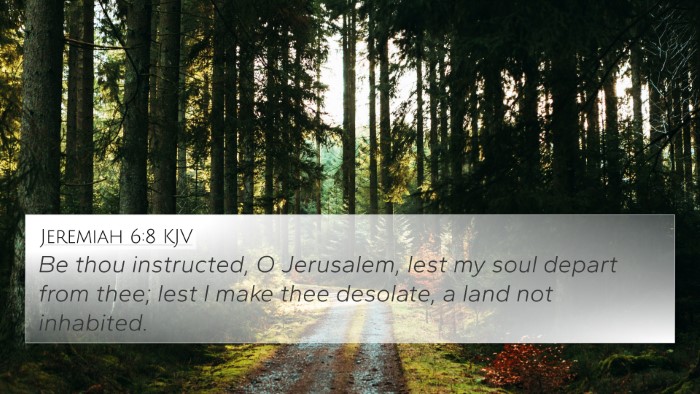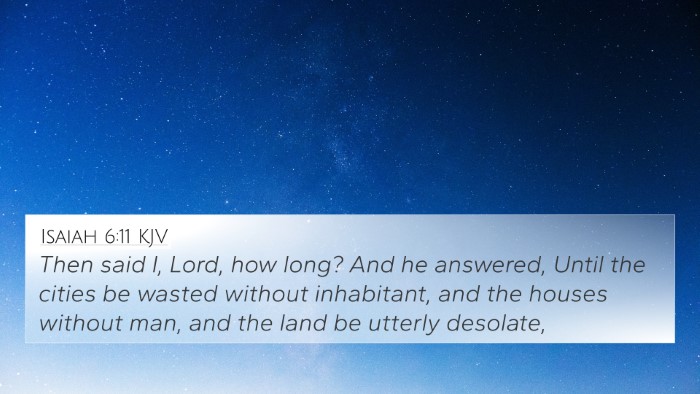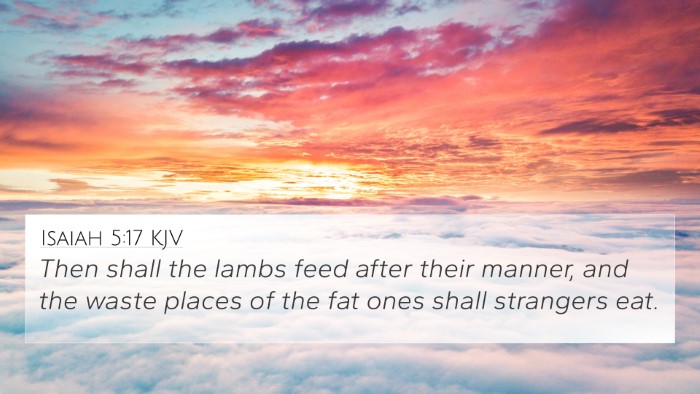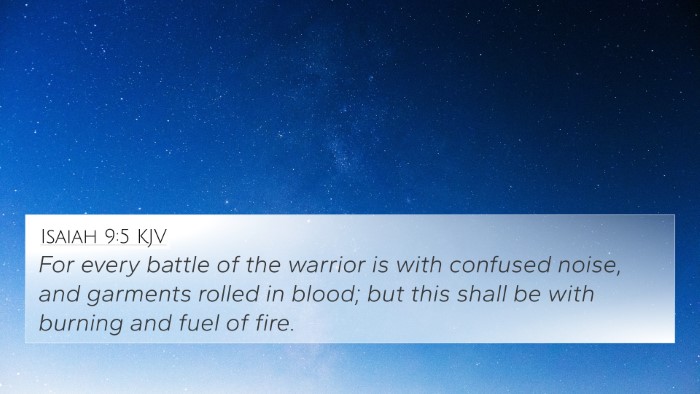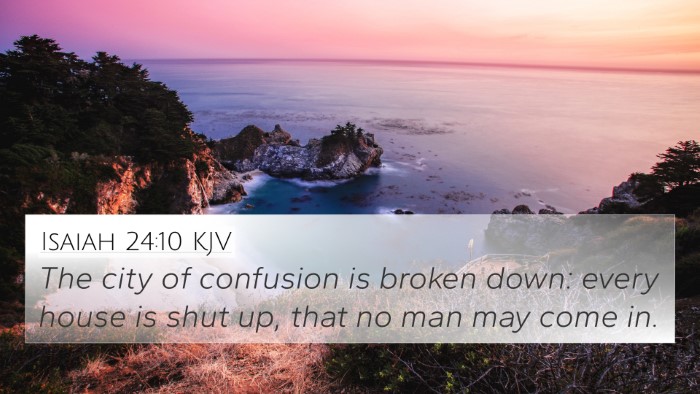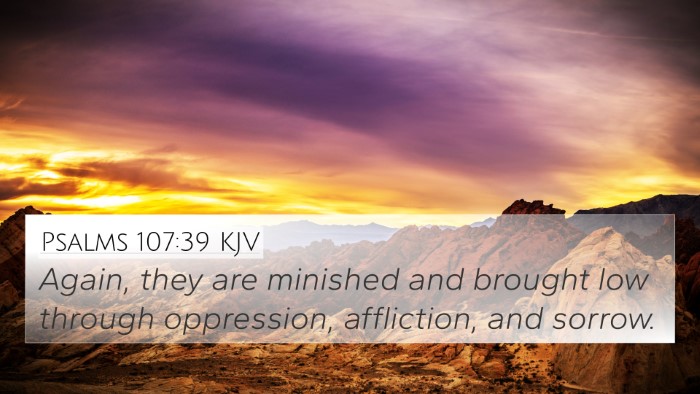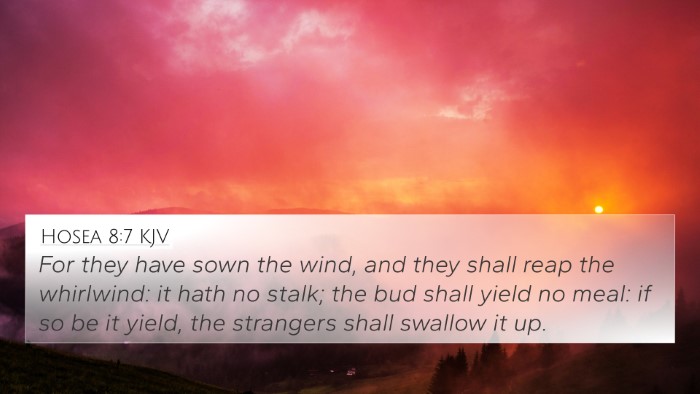Understanding Isaiah 1:7
Verse: "Your country is desolate, your cities are burned with fire: your land, strangers devour it in your presence, and it is desolate, as overthrown by strangers."
Overview: Isaiah 1:7 serves as a poignant declaration of the devastation faced by the people of Judah due to their disobedience to God's commandments. The prophet Isaiah admonishes the people for their rebellious ways and highlights the consequences of turning away from God.
Commentary Insights
This verse has been expounded upon by various public domain commentators. Below are critical insights gathered from Matthew Henry, Albert Barnes, and Adam Clarke.
Matthew Henry's Commentary
Matthew Henry notes that the desolation of the country and cities is a direct result of the people's sins. He emphasizes that the natural order is disrupted when societies turn from their moral duties. His analysis underlines that God's wrath manifests in tangible destruction, prompting a call to repentance.
Albert Barnes' Notes
Albert Barnes elucidates that the "strangers" referenced are invaders who have taken advantage of Israel's weakened moral and spiritual state. He draws attention to the social implications of sin, where external threats exploit internal decay. Barnes articulates that the desolation reflects both physical ruin and a spiritual void, illustrating the stark reality of divine judgment.
Adam Clarke's Commentary
Adam Clarke emphasizes the historical context of the verse, pointing out that Judah faced significant strife from surrounding nations due to their departure from God’s ways. Clarke highlights the theme of divine justice and the consequences faced by nations that disregard God’s commandments.
Thematic Connections
- Divine Judgment: The concept of judgment for national sin is discussed throughout scripture.
- Repentance and Restoration: This theme recurs in various prophetic books and underscores the potential for redemption.
- Spiritual and Physical Consequences: Highlights the interconnectedness of spiritual integrity and societal health.
Bible Verse Cross-References
- Jeremiah 4:7: This verse speaks of a lion coming out of his thicket, linking to themes of devastation and judgment.
- Lamentations 1:1: Reflects on the ruin of Jerusalem, paralleling the messages of decline in Isaiah.
- 2 Chronicles 36:16: Discusses the repercussions of ignoring God’s messengers, aligning with Isaiah’s warning.
- Ezekiel 22:30: Presents God looking for a man to stand in the gap, indicating the need for intercession.
- Micah 1:6: Talks about desolation and destruction in response to the people’s transgressions.
- Matthew 23:37-39: Jesus laments over Jerusalem, fulfilling Isaiah’s prophetic warnings.
- Hebrews 10:31: Emphasizes the terror of falling into the hands of the living God, reinforcing the call for accountability.
Tools for Bible Cross-Referencing
To fully grasp the implications of Isaiah 1:7, readers can utilize various tools for cross-referencing:
- Bible Concordance: A helpful resource for locating specific verses and their themes.
- Bible Cross-Reference Guide: A tool that assists in finding links between different verses.
- Cross-Reference Bible Study: Engaging with Biblical texts in a comparative analysis.
- Bible Reference Resources: Comprehensive materials that help to expand understanding of the scriptures.
Conclusion
Isaiah 1:7 encapsulates profound themes of desolation, sin, and the desperate need for repentance. By examining this verse through different commentaries and cross-references, individuals can develop a deeper understanding of how the Old Testament prophecies relate to God's overarching story of redemption. The connections between Bible verses, such as those mentioned, demonstrate the continuity of God's message throughout scripture.
Ultimately, engaging in this Biblically thematic dialogue brings about a richer understanding and appreciation of God's word, guiding the believer towards a more faithful life.

